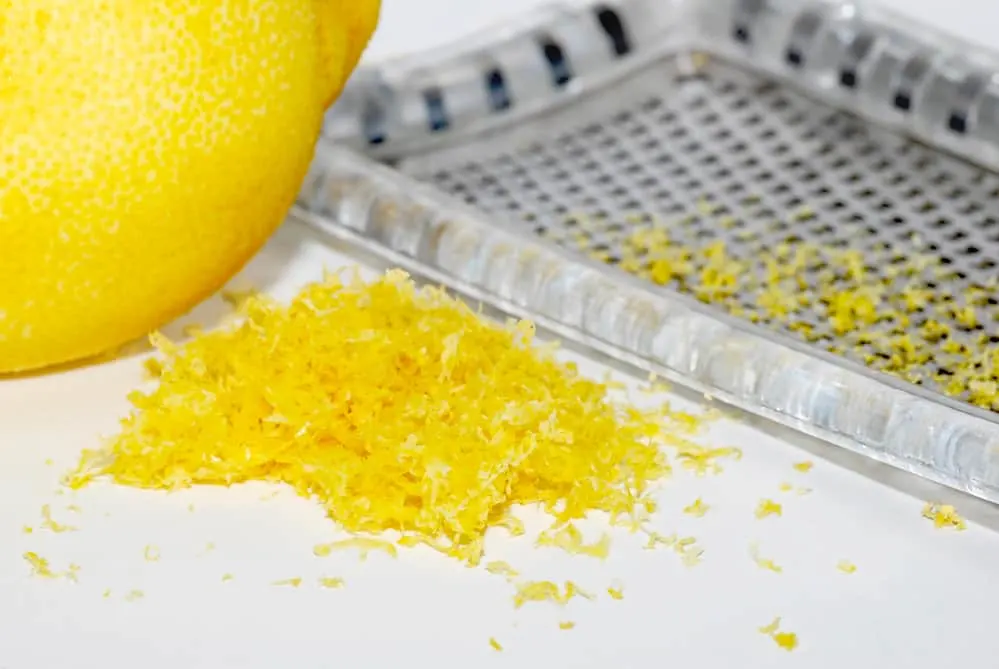Lemons – these vitamin-packed rays of sunshine add life to whatever they are used in, whether it’s an ice-cold lemonade, lemon drizzle cake, a scoop of lemon sorbet, or some zesty lemon chicken.
But after a few days, these citrus fruits start losing their spark – their juice starts drying up, they shrivel and eventually go bad. You never know when there’s a stock of lemons that didn’t get enough sunshine, didn’t enjoy the weather, and ended up with lesser juice without enough zing.
It’s better to get a larger stock of lemons when you find the freshest ones and freeze them for later use (yes, it’s possible to freeze them).
If this is your plan, make sure to choose lemons that are plump and free of any soft or black spots on the rind. Smaller lemons are zingier and juicier and are the best option for freezing.
Having a stash of frozen lemons means that you’ll be able to treat yourself to lemonade, or add a delicious little tang to any dish, sweet or savoury.
How to Freeze Lemons
Lemons can be frozen whole, as slices, wedges, or juice. There are different ways of freezing different forms of lemon:
Freezing Lemons Whole
- Start off by thoroughly washing them to remove any dirt. You may use a little vinegar to clean off dirt, especially if you have bought your lemons straight from a farm or farmer’s market – this applies to freezing lemons in any form.
- You can directly store the lemons in a freezer bag or container. Whatever you store them in should be well sealed and airtight.
Thawing Whole Lemons
Whole lemons will last for up to 3-4 months in the freezer. When you are ready to use them, you can either microwave them for a quick few seconds if you are in a hurry, or thaw them in cold water for around 15 minutes. Once they’ve defrosted, they are ready to be used.
Freezing Lemon Slices/Wedges
Fresh lemon wedges last for at most 3 days. Freezing lemon wedges prevents the lemons from getting too soft, making them perfect for use in lemon water or other beverages. Here’s how you should go about it:
- Slice the lemons into four even wedges.
- Space them out on a flat tray and place it in the freezer until the wedges are completely frozen (around 2-3 hours). You need to freeze them separately first to prevent the wedges from sticking to each other. To check if they are completely frozen, press a bit of pulp- if it doesn’t squirt juice, you are good to go.
- Once frozen, store the wedges in a freezer bag or container and take them out as needed.
Thawing Lemon Wedges
To defrost lemon wedges, just keep them outside for a few minutes – do not place them in the microwave since the juice may explode everywhere. You can’t place them in water either, since bacteria may mix in with the lemon juice.
Freezing Lemon Zest
To start off, use a microplane to zest the lemons. Be careful not to get the white rind in the mix since this can be quite bitter.
- Place the lemon zest in a container or bag and freeze it.
- If you are freezing the zested lemons, wrap them in foil or plastic wrap first to prevent their juice from drying out.
Lemon zest doesn’t need to be thawed since it’s already more or less a fine powder and can be used straight away.
Freezing Lemon Juice
Fresh lemon juice lasts for at most 3 days. Here is how you can store it for longer:
- Get as much liquid as you can out of the lemons – you may use a citrus juicer for this. If you don’t have one, you can even squeeze the lemon with your hands until the juice stops flowing out.
- Remove all the seeds from the juice without getting rid of the pulp.
- If you are storing it for specific food or drink recipes, it’s a good idea to measure the amount of liquid you need before freezing it. For instance, you may divide the juice into 3 ml each and freeze them in an ice cube tray for your daily lemon water fix. If you want to use your ice cube tray for well, ice, you can store the lemon cubes in a container.
Thawing Lemon Juice
To thaw the juice, place it in the microwave for a few seconds, or let it sit at room temperature until it is liquid again. Alternatively, if you are using it for a cold or frozen dish, you can use the frozen juice as is.
Tips For Freezing Lemons
Here are some things that you shouldn’t do if you want to avoid tasting bad lemons:
- Refreeze thawed lemons/juice.
- Freeze lemons that aren’t fully ripe- they won’t taste good and freezing them will stop the ripening process.
- Freeze lemons that are going soft, or look like they are starting to go bad.
Using Your Frozen Lemons
Freezing lemons can help them last for up to a few months. The only thing to watch out for is that they’ll become a little mushy, but the juice will still be as fresh as ever. You can use these frozen lemons in a number of ways such as:
- Adding them to your food, to make dessert, to enjoy lemon-flavoured drinks, etc.
- For beauty purposes- the rind can be used to make different scrubs to brush off dead skin from your body. The juice can be added to other home remedies that will rejuvenate your skin and revive its natural glow.
Fresh lemons ordinarily last for a few days at most, but by freezing them, you can use them all year round, and at your convenience.


